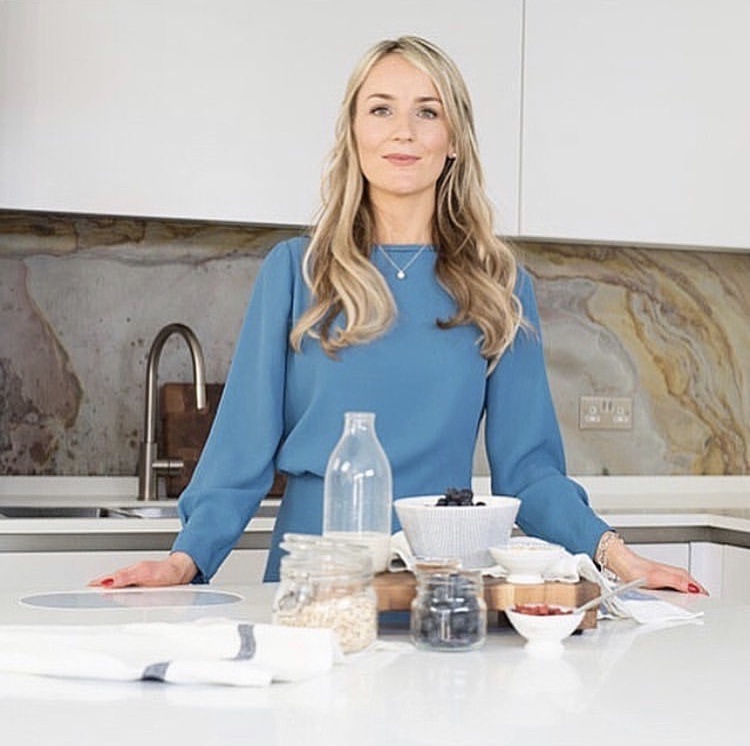The longer days and shorter nights of the summer months, mean that sufficient sleep and optimal energy are crucial to carry us through the season. Our circadian rhythm is an internal body clock which regulates our sleep-wake cycle, and several hormones are involved, for example, blood concentrations of the sleep hormone melatonin rise 3-10 fold during the night. However, this rhythm can be disrupted by the extended daylight accompanying the summer months. Furthermore, hot nights, summer cocktails and social lifestyles can really take their toll on our sleep.
Here are 5 top tips to keep our circadian rhythm in sync and support sleep on those long summer days…
- Consider plant extracts for sleep
Valerian is the plant of choice for poor sleep and has been used in traditional medicine for centuries. A 2015 meta-analysis of randomised placebo-controlled trials concluded that those taking valerian root had an 80% greater chance of reporting improved sleep than those taking the placebo (1). Lemon balm extract has calming and relaxing effects on the body, which a perfect combo for supporting sleep (2). It is thought that these plant extracts can help to increase GABA in the brain, a neurotransmitter which keeps anxiety in check.
- Keep your gut healthy
Scientists are now referring to our gut as our second brain, and a healthy gut may mean a better night’s sleep. Our gut is home to trillions of bacteria, and collectively, this bacterium is known as our gut microbiota. Exciting preclinical research suggests that prebiotics may improve sleep quality and realign circadian rhythm disruptions. Prebiotics are potent fibres that feed specific types of stress-protective gut bacteria, helping them to flourish and grow. As a result, metabolites are produced that influence our brain, behaviour and sleep (3). Prebiotic fibre has been shown to improve restorative non-rapid-eye-movement (NREM) sleep, which is responsible for restful deep sleep. They also increase time spent in rapid-eye-movement (REM) sleep after exposure to acute and chronic stress. REM sleep is critical for promoting recovery from stress (4,5).
- Include tryptophan and carbohydrates in your evening meal
Tryptophan is part of a protein molecule and is the precursor to our sleep hormone melatonin. Foods such as chicken, turkey, yoghurt, milk, eggs, nuts and seeds are particularly rich sources of this nutrient. For tryptophan to have a sedative effect, it needs to enter the brain by crossing the blood-brain barrier, and carbohydrate-containing foods such as wholegrain bread, potato, rice, pasta, beans and pulses are required to facilitate entry into the brain.
Aim to have a balanced evening meal or a small snack before bed, which includes protein and carbohydrate. Why not try a bedtime snack of wholegrain bread topped with chicken, crackers with hummus or yoghurt and banana.
- Manage stress throughout the day
Sleep and stress are closely linked, therefore calming the body with plant extracts such as Californian poppy and passionflower can be just what we need. Magnesium has been dubbed nature’s tranquiliser and can help the body relax. Whilst vitamin B6 is required for neurotransmitter production, including GABA, dopamine and serotonin, all of which play a role in mood.
Lastly, L-tyrosine is an amino acid required for the production of important brain chemicals called dopamine and norepinephrine. Both of these neurotransmitters are depleted under stressful situations, which can comprise cognitive function. L-tyrosine supplementation may help to alleviate stress-induced cognitive decline, by restoring levels of these chemicals in the brain. Therefore L-tyrosine may improve memory and attention during stressful situations (6-10).
- Be mindful of caffeine
Caffeine has been shown to delay sleep onset, duration and quality of sleep. The rate at which we metabolise caffeine depends on our genes, which is why some people may be able to drink a cup of coffee after dinner and sleep just fine, whilst others find just small amounts can make them feel jittery and anxious.
If you struggle with sleep, try to keep your caffeine intake to earlier on in the day (before 12 pm), as it can take several hours for it to be metabolised by the body.
- https://www.ncbi.nlm.nih.gov/pmc/articles/PMC4394901/
- https://www.ncbi.nlm.nih.gov/pmc/articles/PMC3230760/
- https://www.nature.com/articles/s41598-018-22438-y
- https://pubmed.ncbi.nlm.nih.gov/28119579/
- https://www.sciencedirect.com/science/article/abs/pii/S0889159121002701.
- https://pubmed.ncbi.nlm.nih.gov/7794222/
- https://www.ncbi.nlm.nih.gov/pmc/articles/PMC3863934/
- https://pubmed.ncbi.nlm.nih.gov/25598314/
- https://www.sciencedirect.com/science/article/abs/pii/S0022395615002472?via%3Dihub
- https://pubmed.ncbi.nlm.nih.gov/25797188/






